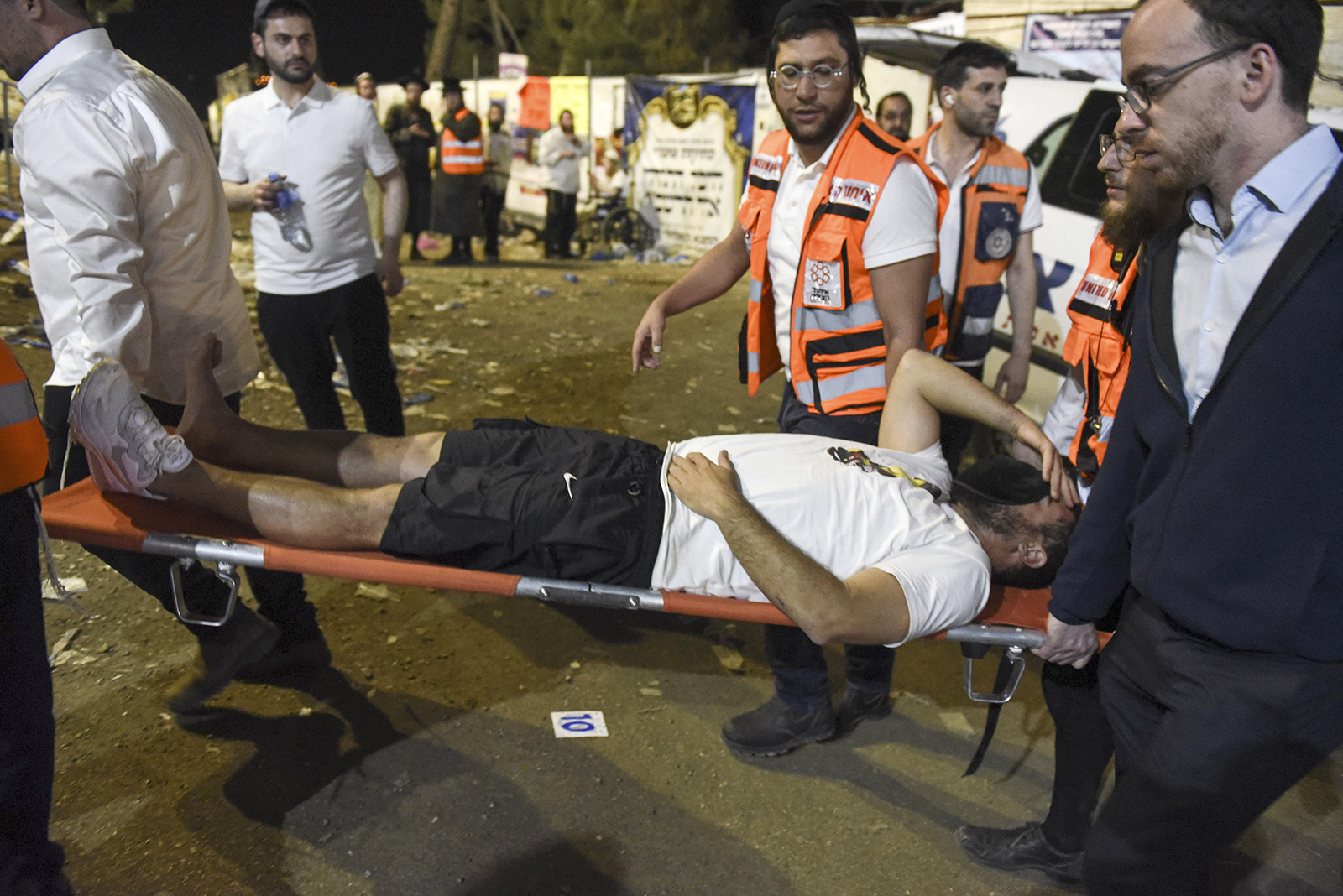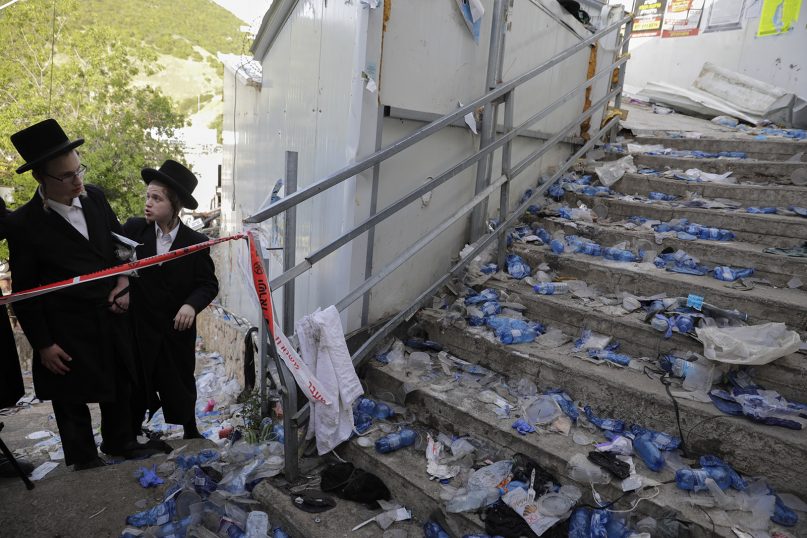JERUSALEM (RNS) — At least 45 Jewish pilgrims were crushed to death and hundreds more were injured late Thursday (April 29) during an annual celebration of a Jewish holiday in the Galilee.
The tragedy occurred at Mount Meron, where more than 100,000 Orthodox men, women and children gathered to celebrate Lag b’Omer, a holiday that recalls the end of an ancient plague. Jews all over the world celebrate Lag b’Omer by attending concerts and happy events. Children light bonfires.
This year’s event at Mount Meron took place against the wishes of health officials, who warned that such a huge gathering would jeopardize Israel’s largely successful effort to prevent the spread of COVID-19. Last year, Israel was under lockdown during the holiday.
Video footage from the stampede shows tens of thousands of religious men crowded into a narrow walkway. Some reportedly slipped down a stairway and were trampled by others propelled by the crowd.
Chaos ensued to the point where, many hours later, some families were still searching for loved ones. President Reuven Rivlin asked Israelis to contact his office if their loved ones were still unaccounted for.
“This is the time to embrace the families. To help all those looking for their loved ones. To take those injured to our hearts. To weep together,” Rivlin said in a national address to the public.
On social media, families sent out pleas for prayers and information for injured and missing relatives.
Haim Spielberg, a volunteer for the ZAKA search and rescue organization, called the scene of the tragedy “one of the most difficult” he had ever seen.
“While we were working at the scene, it was so distressing to hear the constant ringing of the cellphones of the deceased. My eyes filled with tears when I saw the words ‘Dad’ or ‘Mom’ on the phone screen,” he said.

Israeli security officials and rescuers carry an ultra-Orthodox Jewish man who was injured during the festival of Lag b’Omer at Mount Meron in northern Israel, Friday, April 30, 2021. A stampede at the religious festival attended by tens of thousands of ultra-Orthodox Jews in northern Israel killed dozens of people and injured more than 100 others early Friday, medical officials said, in one of the country’s deadliest civilian disasters. (AP Photo)
Not all stories ended with such pain. After the father of a missing boy entered the national forensic institute to see whether his son’s body was there, still unidentified, he learned his son had just come home. He had been unable to contact his family because cell phone service had collapsed due to the high volume of calls.
The tragedy — one of the worst in Israel’s history — has brought sympathy from Israelis of all religious persuasions.
As tens of thousands of people who had been at Meron searched for ways to leave the rural area, Arab citizens of Israel provided them with food and water, and secular Israelis in Tel Aviv lined up to donate blood.
Mourners around Israel rushed to perform the funerals of victims before the start of Shabbat, while others are forced to wait until next week after the bodies have been identified.
The Police Investigation Department of the Ministry of Justice announced it will launch an investigation into the incident.
Yisrael Frey, an ultra-Orthodox journalist, criticized the government for not standing up to Israel’s Orthodox religious leadership and their demands to continue life as if there were no rules or a pandemic.
“The entire Meron experience is crazy,” Frey tweeted. “Hundreds of thousands of people on a small mountain with 1,001 cutting corners. How does it happen? Because simply no one is able to stand before us. For who can, God forbid, say a word to us?”
But Rachel Sharansky Danziger, an essayist, urged people not to jump to conclusions.
“It’s tempting, oh so tempting, to jump straight to accusations,” Danziger wrote in her Times of Israel blog. “Why were so many people let into the compound? Why did so many people choose to go into the compound? Who is at fault? Who should be held accountable?
“But I push such thoughts away. There will be time to ask such questions later. To ask, and hopefully to learn, and implement, and avert such deaths, such mourning, in the future. But it will be later, when we will be able to ask these necessary questions in the spirit of compassion; later, when we will be better placed to use them as a means to build a better future,” Danziger wrote.





